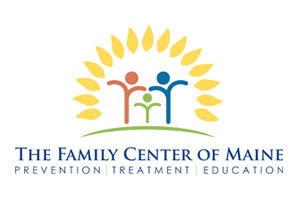Children can find it difficult to communicate how they feel, and that can also be difficult for the adults in their life. Understanding a child’s thoughts, feelings, motivations and fears is essential to the child’s development, but is often a challenge. If you find that you and your family are struggling with any of the following, get in touch and we will find the right therapist for you.
If you are seeking treatment for your child we request the primary caregivers also participate in therapy biweekly or more often as needed. It is our philosophy that children need to see the family system collectively working to improve the family relationships and environment.
Specialties:
Autism
ADHD
Trauma
Social Anxiety Disorder
Anxiety and Depressive Disorders
Identity Exploration
Modalities Used
Play Based Therapy
Play therapy is a psychotherapeutic approach primarily used to help children ages 3 to 12 explore their lives and freely express repressed thoughts and emotions through play. Therapeutic play normally takes place in a safe, comfortable playroom, where very few rules or limits are imposed on the child, encouraging free expression and allowing the therapist to observe the child’s choices, decisions, and play style.*
*Sussex Publishers. (n.d.). Play therapy. Psychology Today. Retrieved September 26, 2022, from Psychology Today
Art Therapy
Art therapy involves the use of creative techniques such as drawing, painting, collage, coloring, or sculpting to help people express themselves artistically and examine the psychological and emotional undertones in their art.*
*Sussex Publishers. (n.d.). Art therapy. Psychology Today. Retrieved September 26, 2022, from Psychology Today
Cognitive Behavior Therapy
Cognitive behavioral therapy (CBT) is a form of psychotherapy that focuses on modifying dysfunctional emotions, behaviors, and thoughts by interrogating and uprooting negative or irrational beliefs. Considered a "solutions-oriented" form of talk therapy, CBT rests on the idea that thoughts and perceptions influence behavior.*
*Sussex Publishers. (n.d.). Cognitive behavioral therapy. Psychology Today. Retrieved September 26, 2022, from Psychology Today
Social Skills
Social skills training is a therapeutic approach used to improve interpersonal relations. The therapy focuses on verbal and nonverbal behaviors common in social relationships. For example, participants may be encouraged to use eye contact when speaking with other people or maintain a certain amount of personal space with the person they are speaking with.*
*Kolakowsky-Hayner, S.A. (2011). Social Skills Training. In: Kreutzer, J.S., DeLuca, J., Caplan, B. (eds) <strong><a href="https://doi.org/10.1007/978-0-387-79948-3_2058" target="_blank" rel="noopener">Encyclopedia of Clinical Neuropsychology</a></strong>. Springer, New York, NY.
Self Regulation
Self-regulation is the ability to manage your emotions and behavior in accordance with the demands of the situation. It includes being able to resist highly emotional reactions to upsetting stimuli, to calm yourself down when you get upset, to adjust to a change in expectations, and to handle frustration without an outburst.*
*How can we help kids with self-regulation? Child Mind Institute. (2022, April 14). Retrieved September 26, 2022, from Childmind.org
Walk and Talk Therapy
Walk and Talk Therapy is a form of psychotherapy that incorporates walking outdoors while talking about issues and problem-solving with your therapist. Depending on your preferences, your therapist may also incorporate aspects of mindfulness that integrates physical movement and observation of your natural surroundings.*
*Rines, J. (2020, September 18). What is walk and talk therapy and how does it work? The Growth & Wellness Therapy Centre. Retrieved September 26, 2022, from Growthwellness Therapy


